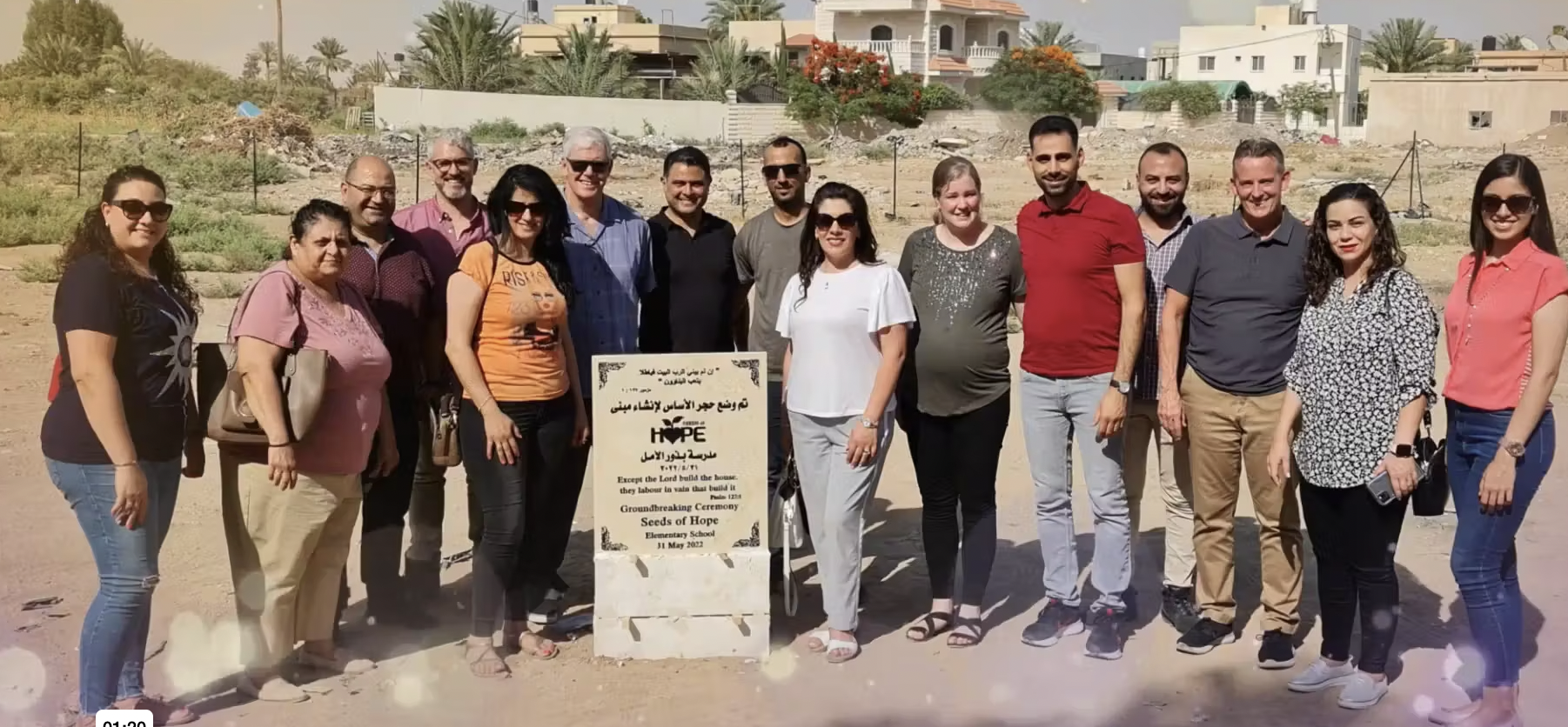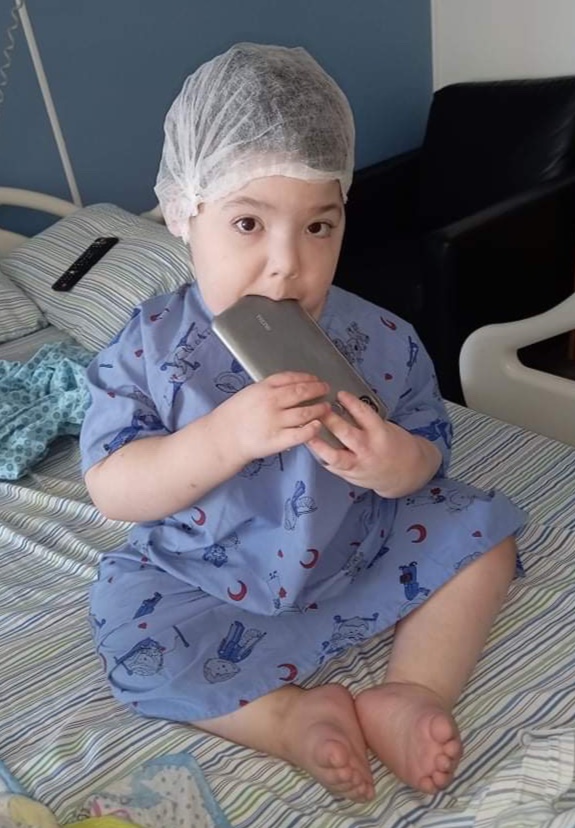
Have you ever felt hopeless?
Like you’re out of options and have nowhere else to turn?
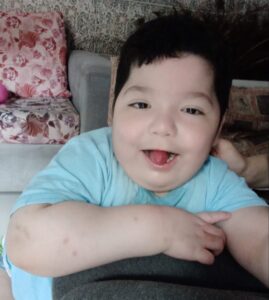 At Seeds of Hope, we have the incredible honor of intersecting with people when they’re at their most hopeless. Through our humanitarian aid projects and the trust we’ve built in our school and cultural center, we’ve become known as a place that helps. And when you’re at your most hopeless, you’re looking for any help you can find.
At Seeds of Hope, we have the incredible honor of intersecting with people when they’re at their most hopeless. Through our humanitarian aid projects and the trust we’ve built in our school and cultural center, we’ve become known as a place that helps. And when you’re at your most hopeless, you’re looking for any help you can find.
This was exactly the situation that brought Amir and his family to Seeds of Hope.
When Amir was born, the doctors immediately knew something wasn’t right. Unknown to them, he had been having difficulties in utero that they hadn’t noticed. After he was born, they discovered significant intestinal issues and that many of his major organs were out of place. It affected his lungs, heart, and especially his digestion.
Amir didn’t leave the hospital for the first nine months of his life. They ran test after test and tried to manage his symptoms. After some time, they discovered that he was suffering from colon paralysis. It was causing his small body to swell to dangerous levels and had very dangerous implications. After his diagnosis, doctors told Amir’s parents that he would need two surgeries—one to address the immediate danger he faced as his colon continued to swell and one to address his long-term health.
Amir’s first surgery, while difficult, was successful. After nine months of confusion and fear, not knowing what was wrong with their child, Amir’s parents were relieved and exhausted. However, they now had to figure out how to get Amir the second surgery he needed when they couldn’t even pay for the first one.
Six months after his first surgery, Amir’s parents brought him back to the hospital and were shocked to hear that his second surgery could not be scheduled for two more years. This hospital was the only place that accepted their insurance, so moving was not an option. With nowhere else to turn, they could only wait. This meant two more years of Amir’s mother caring for him full time and being unable to work—a blow to their already difficult financial situation.
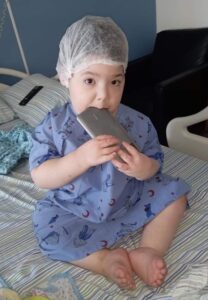 After two long years, the family was eager to get Amir’s surgery scheduled. Sadly, the pandemic shut down everything, and they had to wait another 15 months. After things began to open up, Amir’s family continued to hit roadblocks—this time financially. The hospital wouldn’t schedule his surgery unless they could pay for it.
After two long years, the family was eager to get Amir’s surgery scheduled. Sadly, the pandemic shut down everything, and they had to wait another 15 months. After things began to open up, Amir’s family continued to hit roadblocks—this time financially. The hospital wouldn’t schedule his surgery unless they could pay for it.
This was their most hopeless point.
Years of waiting. Out of options.
Nowhere to turn.Thankfully, someone suggested they reach out to Seeds of Hope.
“When we met them, we could tell they were hopeless,” said Fuad Jaddou, Seeds of Hope’s Director of Community Outreach. “We could see how tired they were.”
Thanks to the generosity of our friends and supporters, we have funds set aside to help with situations like Amir’s immediately. We immediately jumped in to help provide funding for some of the medications and supplies that they hadn’t been able to afford. Then we helped them get genetic screening done to understand the full scope of Amir’s condition. At almost four years old, Amir was finally diagnosed with Bardet-Biedl syndrome—a rare genetic disorder that affects 1 out of 100,000 people.
Armed with this new information about their son’s condition, the next step for Amir’s parents was figuring out his surgery, which was still desperately needed. That’s where our incredible partner, PCRF, came in.
The Palestine Children’s Relief Fund (PCRF) is devoted to helping children in the West Bank access life-saving medical care. We’ve partnered with them on many of our wheelchair distributions and other humanitarian projects, and we knew they could help Amir.
PCRF went to work quickly and got Amir scheduled for a fully-funded surgery without delay.
“I barely slept while he was in the hospital,” said Amir’s mother. “They were the hardest days of my life because I didn’t know what the doctor would walk out and tell me.”
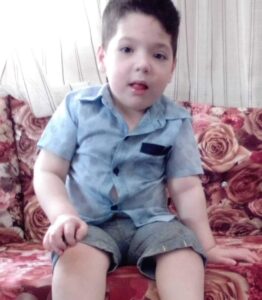
After four days in the hospital, the surgery was complete, and Amir was in the clear. It was a huge success!
“When we first met with Seeds of Hope, they told us they didn’t know if they could help, but they would try,” said Amir’s mother. “But something inside us told us that they would do it. Our families didn’t help us, but Seeds of Hope supported us. They were our family.”
Amir is now out of danger and able to enjoy being a child, perhaps for the first time. He can be active now, and we’re working with his family to get him connected with the rehabilitation he needs.
We met Amir’s parents when they were at their most hopeless, but now they have a support system. They have a way forward in caring for their son and a light at the end of their financial darkness. They have hope.
“Every time we pass by the Seeds of Hope office, I feel hopeful, and I remember the peace and comfort that you brought us,” Amir’s mother told us. “You were our refuge.”

